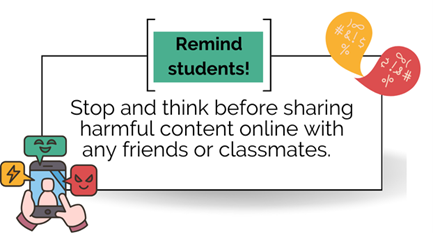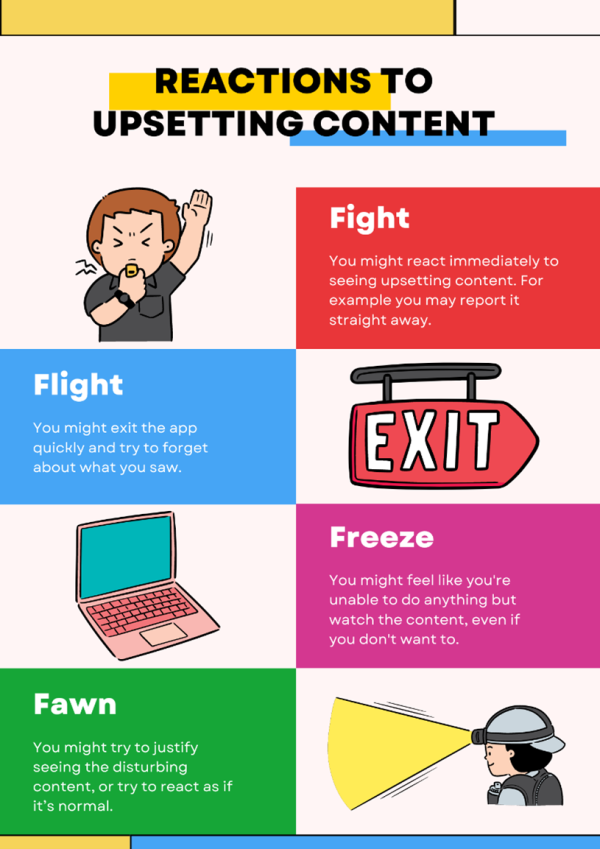Many rangatahi are exposed to harmful or inappropriate content online that they are not developmentally ready for. This could include violent, hateful, extremist or sexually explicit content. This can make them feel confused, embarrassed, and scared.
Think before you share
If they see harmful or upsetting content online – don't watch it, don't share it, report it.

Some rangatahi may share harmful content online or with friends as a joke, to get a reaction from the recipient or raise awareness of the content. However, receiving this content can result in young people feeling confused, scared and disturbed. It can also negatively impact the victims that are depicted in the content.
Websites
Netsafe have information on what to do if your students have been exposed to harmful and distressing content online.
Posters and factsheets
The eSafety Commissioner outline the different ways young people might react to upsetting content they see online.

Videos
When a young person comes across harmful and upsetting content online they may react differently. The below video will help educators talk to students about what to do if they encounter harmful content online.
Te Mana Whakaatu Classification Office have created a video to explain the importance of age rating and warnings about films, shows and games in New Zealand.
Games
Ara Taiohi are a youth development organisation who have developed MOSAIC Cards to help create social cohesion through conversation. These cards can be used to help you kickstart difficult and challenging conversations about prejudice, racism and harmful ideologies.
Report
If young people come across harmful content online, they should report the content directly to the platform.
- Keep It Real Online - Report online harms(external link)
In some instances, students may be exposed to objectionable (illegal) content such as child sexual exploitation or terrorist or violent extremist material. If students see content of this nature they should report it to the Department of Internal Affairs and talk to a trusted adult.
Help and support
There are support services available for young people if they need help and support for content they have seen online:
- Netsafe helps people with online bullying, abuse, harassment, and other things that happen online that make you feel bad. If you see any harmful content online, you can report it on our website(external link).
- 1737(external link) is a free service for New Zealanders feeling down, anxious, a bit overwhelmed or who just need to chat to someone. You can call or text for free 24/7.
- Youthline(external link) provides support for young people for a range of issues including depression, loneliness and peer pressure. Contact them on talk@youthline.co.nz or freephone 0800 376 633.